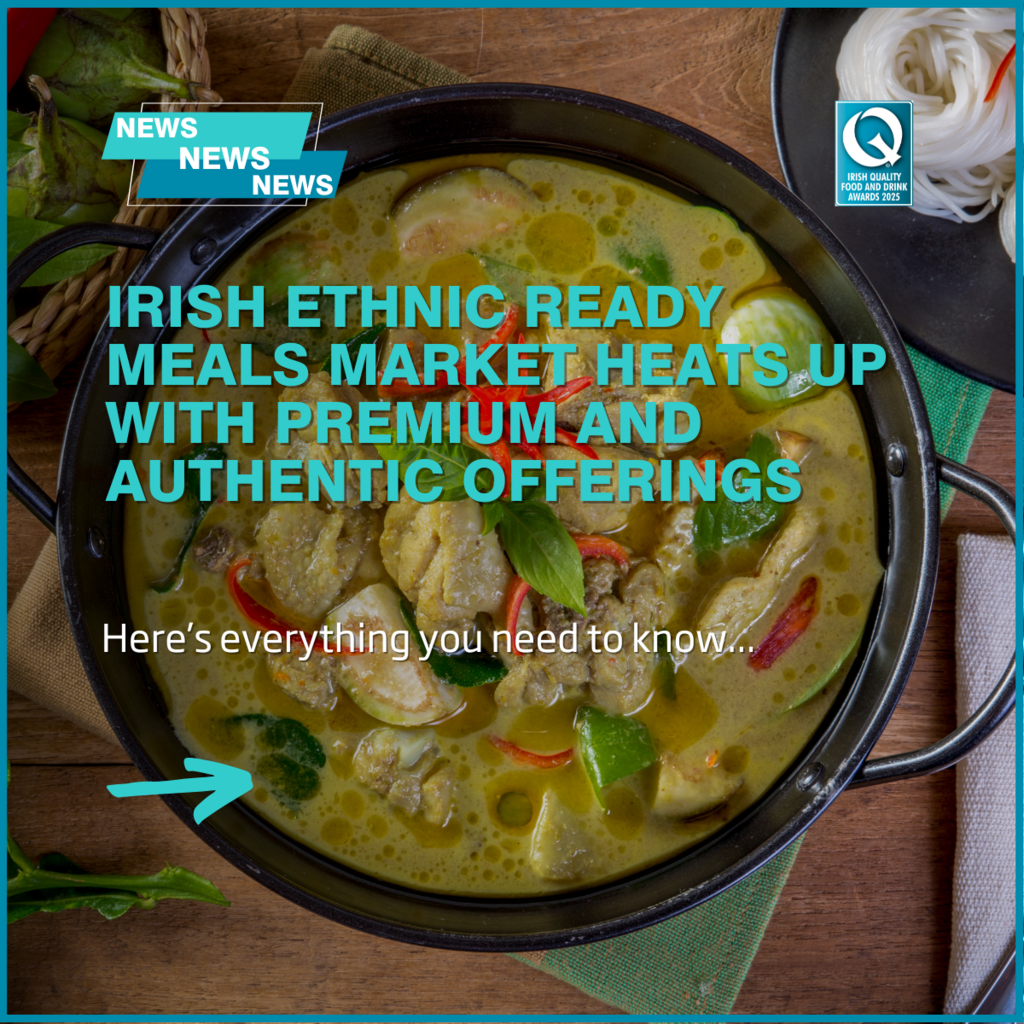
Irish ethnic ready meals market heats up with premium and authentic offerings
The ethnic ready meals sector in Ireland is expanding rapidly, driven by consumer demand for authentic international flavours, premium quality, and health-conscious options. Success requires rigorous market research, navigating FSAI regulations, and strategic planning, with consultancies playing a vital role in new business viability and growth.
The evolving Irish food market reflects a sophisticated and growing appetite for international cuisines, creating a fertile ground for ethnic ready meals. Once regarded as simple kitchen staples, these ready meals have transformed into essential culinary tools for both home cooks and professional chefs eager to explore global flavours. The market in Ireland is expanding beyond established international brands, presenting opportunities for new entrants who can offer authentic regional recipes, premium ingredients, or cater to specialized dietary needs. However, achieving success demands more than just a good product; it involves navigating a competitive landscape underscored by regulatory complexities and supply chain challenges.
Trends driving growth in Ireland’s ethnic ready meals sector include the globalization of food choices, where consumers show enthusiasm for cooking diverse international dishes at home, such as Indian curries, Thai stir-fries, and Mexican fare. Health and wellness are also shaping demand, with consumers seeking options low in sugar, salt, and fat, free from additives and preservatives, while still maintaining sensory appeal. Premiumisation is notable, as Irish consumers increasingly pay for high-quality, artisan products with unique flavour profiles and compelling brand narratives, often incorporating local ingredients. Convenience remains a key driver amid busy lifestyles, with ready-to-use meals serving as quick meal solutions. Sustainability and ethical sourcing have further become critical, with consumers favouring brands prioritizing eco-friendly packaging and transparent supply chains.
For any prospective business in this space, thorough market research is the essential first step. It helps to identify and define specific niches—whether focused on particular ethnic cuisines or catering to health or flavour preferences—and clarifies the target audience, retail channels, and acceptable price points. Understanding the competitive landscape is equally vital; assessing competitors’ products, pricing, packaging, distribution, and marketing strategies uncovers market gaps for new entrants to exploit. For instance, there may be opportunities for locally produced artisanal preserves or unique non-traditional flavour profiles currently underrepresented.
Following market research, conducting a feasibility study is crucial to determining the practicality and viability of the business idea. This includes evaluating technical feasibility—perfecting recipes, testing shelf life, deciding between co-packing or in-house production, ensuring reliable ingredient sourcing, and maintaining strict quality controls compliant with Food Safety Authority of Ireland (FSAI) regulations. Financial feasibility involves detailed cost analysis including startup expenses, operational costs, revenue forecasts, and break-even calculations to chart a clear path to profitability. Operational feasibility assesses the business’s ability to run efficiently day-to-day, considering management expertise, distribution strategies, and adherence to legal and regulatory requirements, particularly the stringent food hygiene and labelling standards enforced in Ireland.
The FSAI mandates meticulous compliance with food labelling laws to protect consumer interests and uphold safety standards. Labels must present clear and accurate information including nutritional content, ingredients, allergens, country of origin, and use-by dates. This ensures transparency and prevents misleading claims about a product’s nature or properties. Businesses must also meet national and EU regulatory frameworks governing food hygiene, traceability, and official controls, involving inspections and audits to maintain the integrity of the food supply chain.
Once a positive feasibility assessment is secured, drafting a comprehensive business plan becomes the roadmap for growth. This document should encapsulate the company’s mission, legal structure, unique value proposition, market analysis, product details including regulatory compliance, marketing and sales strategies, management expertise, and detailed financial projections. Such a plan is indispensable for securing funding and guiding strategic decisions.
Specialist consulting firms like Aviaan play a pivotal role in facilitating success for ethnic ready meal ventures in Ireland. Their expertise spans thorough market research, rigorous feasibility studies including financial modelling, and crafting professional business plans that articulate strong brand stories and clear go-to-market strategies. A case in point is an artisanal curry brand in County Cork, where Aviaan’s intervention with comprehensive market insights and feasibility analysis enabled the entrepreneur to secure financing and distribution contracts, demonstrating the value of data-driven strategic planning in competitive markets.
Launching an ethnic ready meals company in Ireland presents a promising but challenging journey. It demands a strategic approach built on strong market intelligence, rigorous feasibility assessments, and robust planning. Partnering with specialised consultancies that bring regulatory knowledge and industry insight can significantly reduce risk and enhance the potential for a sustainable and profitable business in this vibrant and expanding sector.
